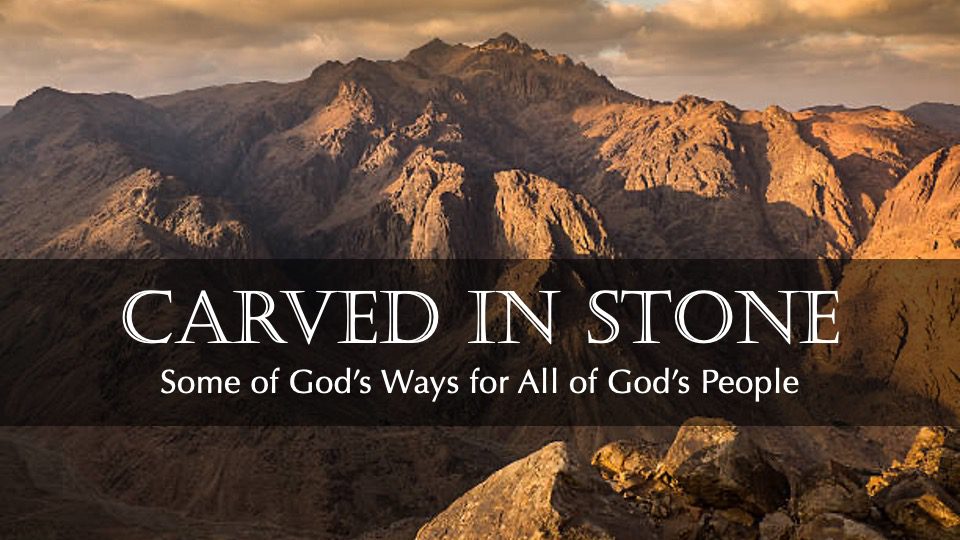
Carved in Stone, Part 3: Accept No Substitutes for God (Exodus 20:4-6)
God made human beings in his own image, and we’ve been trying to return the favor ever since. But to make God in our image is to diminish his nature. How so? To concretize the living God into an inanimate object is to render him lifeless. But God is self-existent, eternal, and supreme; he lives, loves, rescues, and speaks—something idols can never do. Any attempt to concretize God’s identity, then, yields a distorted conception of who he really is. In short, an idol is a lie about God.
Hence the need for the second commandment: “You shall not make for yourself an idol in the form of anything in heaven above or on the earth beneath or in the waters below” (Exodus 20:4). God wants his people to reverently accept who he has revealed himself to be. After all, if anyone has a right to define his own identity, it’s the creator of the universe. Moreover, Israel had been rescued from Egypt by the creator, Yahweh. To serve other gods, then, was not only disloyalty to God, it was to reverse the exodus and go back to bondage.
It is important to remember that gods and goddesses in the ancient world could be carried, controlled, coddled, and manipulated. But the true and living God cannot and will not be controlled by his people. He is sovereign over them, and no earthly religious practice can alter that fact. As G. K. Chesterton rightly noted, “Idolatry is when you worship what you should use, and use what you should worship.” For Israel, then, worship of the one true and living God was never to be directed toward a material object that could be handled. The second commandment wasn’t a prohibition against all artwork per se (cf. Exodus 31:2-5), it was a prohibition against trying to represent God by anything found in his creation.
It is also important to remember that Ezekiel 14:7 refers to “idols of the heart.” Moreover, Colossians 3:5 calls “greed” idolatry. So, the second commandment goes way beyond the issue of worshiping wood, stone, or metal statues. It encompasses putting anything ahead of God in terms of value or importance. As Tim Keller writes, “Idolatry is making a good thing an ultimate thing.” Therefore, we need to ask ourselves, “Where in my life have I made good things ultimate things (e.g., my children, my career, my possessions, my hobbies, my reputation, etc.)?” Even today, God’s people must accept no substitutes for God.
The good news is that God can save us from our own private idolatries. Rather than remaking God into our image, we can be remade into his image through faith in his Son Jesus Christ. After all, Jesus is “the image of the invisible God”; indeed, “God was pleased to have all his fullness dwell in him, and through him to reconcile to himself all things, whether things on earth or things in heaven, by making peace through his blood, shed on the cross” (Colossians 1:15–20).
